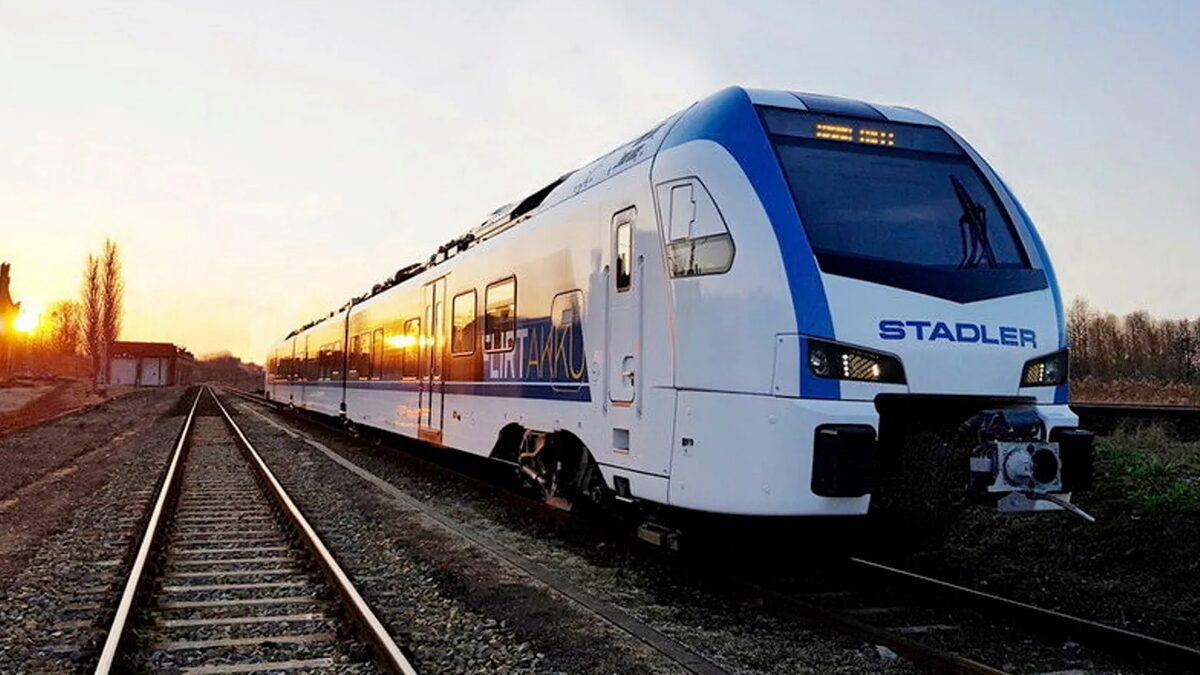Photo: Stadler
H2 and battery-powered train-maker Stadler warns that fuel cells need replacing every three years.
Hydrogen trains are more complex to maintain than their battery-electric equivalents and are likely to lose out in the German market, where battery-powered trains will be suitable on almost every railway line, according to the Swiss manufacturer of both H2 and battery-powered locomotives.
Steffan Obst, the head of German sales at Bussnang-based trainmaker Stadler, said that battery-electric models usually emerge victorious in technology-neutral tenders put out by German railway operators looking for low-carbon trains.
In fact, the only time hydrogen trains usually win tenders in Germany is when H2 models are specifically requested, he said — which is why Stadler still offers its hydrogen train in the German market.
“If the tenders are open to all technologies and the only condition is a potentially CO2-free drive, we have observed that the battery almost always prevails over hydrogen,” he told German business weekly magazine Wirschaftwoche in an interview.
The primary reason for this is that railways in Central Europe are rarely less than 80km from a station with an overhead charging line, which can be used to charge the battery with 15,000 volts — 15 minutes of which is enough to power the train for a further 50-150km.
This effectively eliminates one of the main advantages of hydrogen trains, which can take on enough fuel in quarter of an hour to travel 500-600km, several times the length of most of the German branch-lines currently in need of decarbonisation.
“On most of the approximately 500 routes in Germany that are currently served with diesel, [batteries are] the more efficient and cheaper solution,” Obst observed. “These are usually between 40 and 80km long, which you can easily travel with a battery train.”
In addition, hydrogen fuel cells require significantly more maintenance than a batteries alone, requiring replacement within three years on average.
“Because of this and the hydrogen tank on board, the maintenance effort is of course more complex compared to battery trains,” Obst explained, adding that hydrogen trains also require a battery for back-up power.
The comments come just weeks after the German transport authority behind the world’s first hydrogen-only railway line in Lower Saxony decided to buy only battery-electric models in future, citing the costs associated with running H2 trains…
